 How will your horse, your horse property, and even your horse business be taken care of if you are ever incapacitated or after your death?
How will your horse, your horse property, and even your horse business be taken care of if you are ever incapacitated or after your death?
I know that these are not pleasant topics to think about. We all want to think that we will never get badly injured, but we know it happens. We’ve all read about the tragic riding accidents suffered by Christopher Reeves and Courtney King Dye. You may have also seen the various Facebook posts asking for help to care for a horse whose owner was injured in an accident and didn’t have any system in place to pay for horse care. These kinds of situations can be addressed before they ever happen. Estate planning documents that take into consideration your equine lifestyle can give you peace of mind that your horse, as well as property and business, will be taken care of in the case of incapacitation or death.
There are many considerations with your estate planning if you are involved with horses. There are also many options that allow you to create a plan that works for your individual needs, as well as the needs of your horse, property, and business. As a horse person and an estate planning attorney, I can talk with you about your various options so that you have an equine estate plan that meets your specific needs and provides you peace of mind about the care of your horse, property, and business.
Wills and Trusts
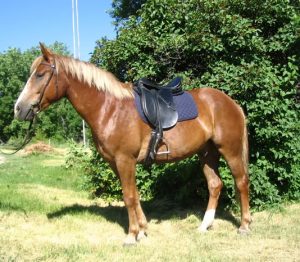 To provide for the distribution of your estate after your death, you should have a will or trust. If you own anything — like a car, house, or horse tack — then you have an estate. Under Massachusetts law, horses are considered property so they are handled just like any other kind of property. If you do not plan for how you want that estate to be distributed, then you will die intestate, and your items will be distributed according to the state intestacy laws.
To provide for the distribution of your estate after your death, you should have a will or trust. If you own anything — like a car, house, or horse tack — then you have an estate. Under Massachusetts law, horses are considered property so they are handled just like any other kind of property. If you do not plan for how you want that estate to be distributed, then you will die intestate, and your items will be distributed according to the state intestacy laws.
Everyone has heard of a will when it comes to estate planning. A will is a legal document that allows you to leave property to certain individuals and organizations. What you may not know is that a will does not automatically give your estate away the moment you die. It must go through probate, which means it is filed with the court and becomes a public document that can be seen by anyone who looks up the file. Probate is a process that takes anywhere from 9 months to several years, depending on the complexity of the estate and any challenges to the will. It usually costs several thousand dollars to have an estate probated. A will may also require the payment of estate taxes. If you haven’t made other plans for the probate period, your assets are not available to pay for horse needs, such as board, feed, and farrier care.
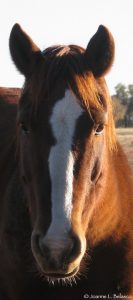 A trust is another estate planning vehicle that allows you to leave your estate to certain individuals or organizations. A trust does not go through probate so it is effective as soon as you die. It is also not a public document. Oftentimes, it is used as a way to defer and avoid certain estate taxes. There are different kinds of trusts, and I can help you chose the one that works best for your equine situation. One advantage of the trust is that funds to care for your horse are available automatically because it does not go through probate.
A trust is another estate planning vehicle that allows you to leave your estate to certain individuals or organizations. A trust does not go through probate so it is effective as soon as you die. It is also not a public document. Oftentimes, it is used as a way to defer and avoid certain estate taxes. There are different kinds of trusts, and I can help you chose the one that works best for your equine situation. One advantage of the trust is that funds to care for your horse are available automatically because it does not go through probate.
There are several factors to consider when deciding if you want a will or trust as your main estate planning vehicle. I go over these considerations when I talk with you about what would work best for your individual situation.
Additional estate planning documents
There are also several other documents you should have as a part of your estate plan. These documents are very important in the case of incapacitation.
Durable Power of Attorney: This document allows you to appoint an agent to handle your financial and other affairs if you become incapacitated.
Health Care Proxy: This document allows someone you have designated to make medical decisions for you should be you become unable to do so.
Advance Directive: Sometimes called a living will, it is a guide for your agent listed on your health care proxy concerning what health measures you want taken should you become unable to make those decisions for yourself.
HIPAA Release: This document allows your medical information to be released to individuals or organizations you list in the release.
Horse Trusts
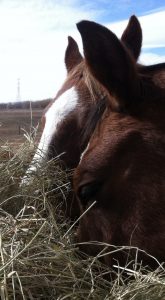 Everyone with a horse should have a horse trust in addition to the other estate planning documents I have just mentioned. You can have a horse trust even if no other property is in a trust. Massachusetts law provided for horse trusts beginning in 2011. The law allows you to create a trust to take care of your horse or any other animal in the event you are incapacitated. The trust can terminate when you are able to take care of the animal again or at the animal’s death.
Everyone with a horse should have a horse trust in addition to the other estate planning documents I have just mentioned. You can have a horse trust even if no other property is in a trust. Massachusetts law provided for horse trusts beginning in 2011. The law allows you to create a trust to take care of your horse or any other animal in the event you are incapacitated. The trust can terminate when you are able to take care of the animal again or at the animal’s death.
A horse trust gives you the ability to include specific instructions concerning the care of your horse. You can specify basic care such as where your horse is stabled, how it should be fed, and additional care, such as farrier and vet visits. You can name the person who will take care of your horse, which means you can make sure the person you want is taking care of your horse. You can even stipulate specific details, such as how you want the horse to be blanketed and special treats for your horse. One of the biggest advantages to a horse trust is that it takes effect at the moment of incapacitation or death. This means you don’t have to worry that your horse will be neglected should anything happen to you.
Horse Property
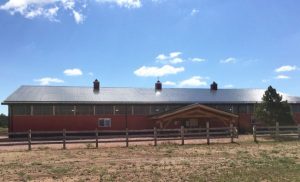 Unlike having a house, a horse property provides you with additional considerations when it comes to your estate plan. As with a house, you may stipulate whether your horse property is sold after your death or whether you leave it to someone. You may also want to ensure that the property remains available for a horse lover to purchase at some time in the future and not turned into a shopping mall or housing development. To do so, you can have a conservation easement put on the property. A conservation easement allows you to determine limitations on future development, and it may also lead to some positive tax consequences. One negative to these kinds of easements is that it may lower the property value if the property is sold at some point. If you think you may need Medicaid in the future to pay for nursing home costs, then I discuss a Medicaid Trust with you, which provides asset protection for your home.
Unlike having a house, a horse property provides you with additional considerations when it comes to your estate plan. As with a house, you may stipulate whether your horse property is sold after your death or whether you leave it to someone. You may also want to ensure that the property remains available for a horse lover to purchase at some time in the future and not turned into a shopping mall or housing development. To do so, you can have a conservation easement put on the property. A conservation easement allows you to determine limitations on future development, and it may also lead to some positive tax consequences. One negative to these kinds of easements is that it may lower the property value if the property is sold at some point. If you think you may need Medicaid in the future to pay for nursing home costs, then I discuss a Medicaid Trust with you, which provides asset protection for your home.
Horse Business
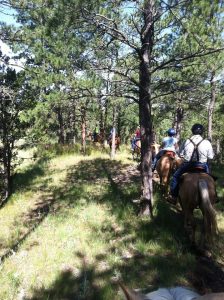 If you are a horse professional, you want to decide what will happen to your business when you die. One option is to simply let the business end. But if you want the business to continue, you should consider how you want it to operate without you. This is called succession planning. Some of the considerations include who will own and manage the business as well as the development and training of successive owners. There are several different ways to create a succession plan, some of which involve trusts in order to reduce taxes and avoid probate.
If you are a horse professional, you want to decide what will happen to your business when you die. One option is to simply let the business end. But if you want the business to continue, you should consider how you want it to operate without you. This is called succession planning. Some of the considerations include who will own and manage the business as well as the development and training of successive owners. There are several different ways to create a succession plan, some of which involve trusts in order to reduce taxes and avoid probate.
Contact me today so we can discuss the right equine estate plan for you.